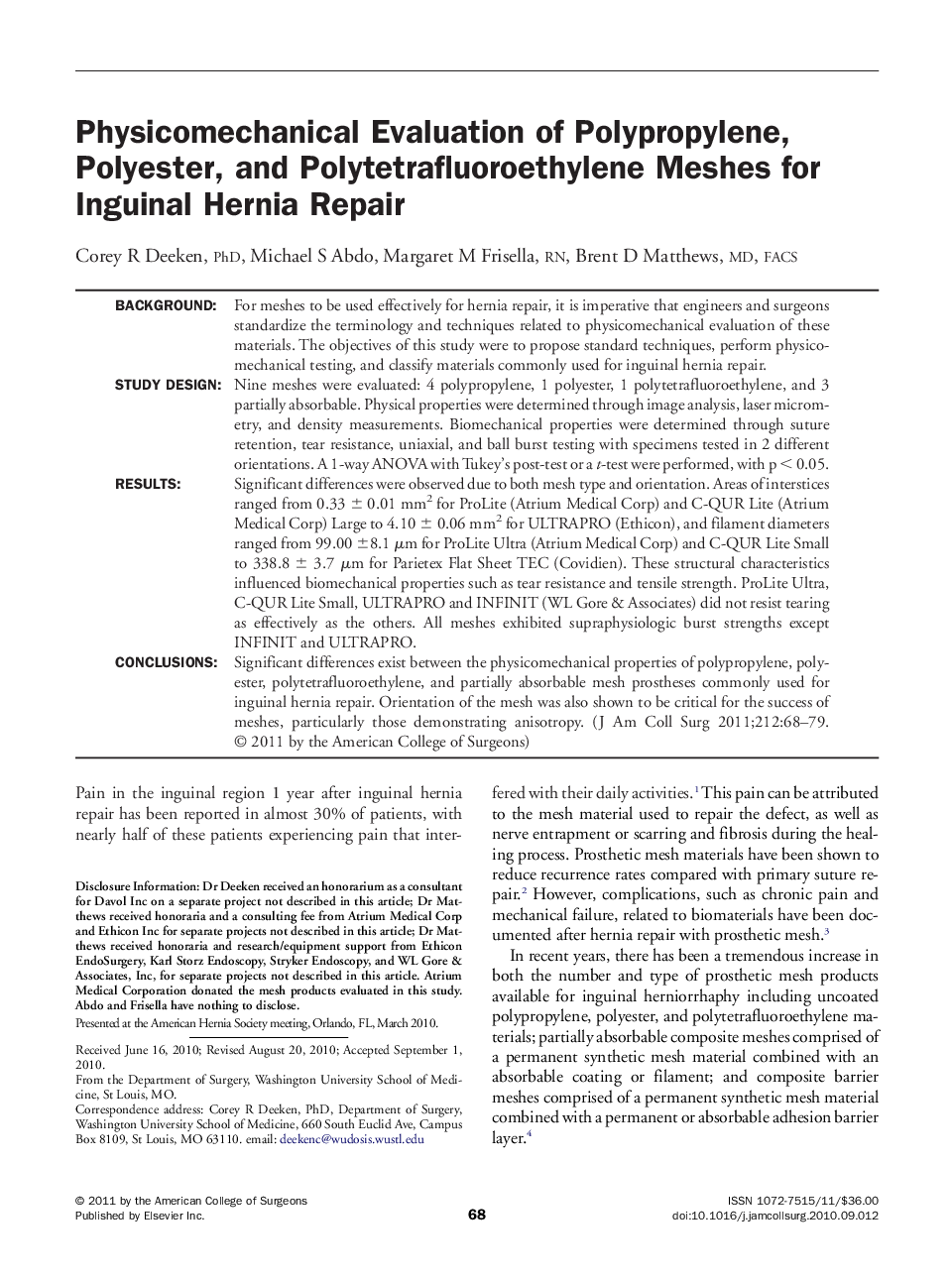| کد مقاله | کد نشریه | سال انتشار | مقاله انگلیسی | نسخه تمام متن |
|---|---|---|---|---|
| 4294650 | 1612277 | 2011 | 12 صفحه PDF | دانلود رایگان |

BackgroundFor meshes to be used effectively for hernia repair, it is imperative that engineers and surgeons standardize the terminology and techniques related to physicomechanical evaluation of these materials. The objectives of this study were to propose standard techniques, perform physicomechanical testing, and classify materials commonly used for inguinal hernia repair.Study DesignNine meshes were evaluated: 4 polypropylene, 1 polyester, 1 polytetrafluoroethylene, and 3 partially absorbable. Physical properties were determined through image analysis, laser micrometry, and density measurements. Biomechanical properties were determined through suture retention, tear resistance, uniaxial, and ball burst testing with specimens tested in 2 different orientations. A 1-way ANOVA with Tukey's post-test or a t-test were performed, with p < 0.05.ResultsSignificant differences were observed due to both mesh type and orientation. Areas of interstices ranged from 0.33 ± 0.01 mm2 for ProLite (Atrium Medical Corp) and C-QUR Lite (Atrium Medical Corp) Large to 4.10 ± 0.06 mm2 for ULTRAPRO (Ethicon), and filament diameters ranged from 99.00 ±8.1 μm for ProLite Ultra (Atrium Medical Corp) and C-QUR Lite Small to 338.8 ± 3.7 μm for Parietex Flat Sheet TEC (Covidien). These structural characteristics influenced biomechanical properties such as tear resistance and tensile strength. ProLite Ultra, C-QUR Lite Small, ULTRAPRO and INFINIT (WL Gore & Associates) did not resist tearing as effectively as the others. All meshes exhibited supraphysiologic burst strengths except INFINIT and ULTRAPRO.ConclusionsSignificant differences exist between the physicomechanical properties of polypropylene, polyester, polytetrafluoroethylene, and partially absorbable mesh prostheses commonly used for inguinal hernia repair. Orientation of the mesh was also shown to be critical for the success of meshes, particularly those demonstrating anisotropy.
Journal: Journal of the American College of Surgeons - Volume 212, Issue 1, January 2011, Pages 68–79